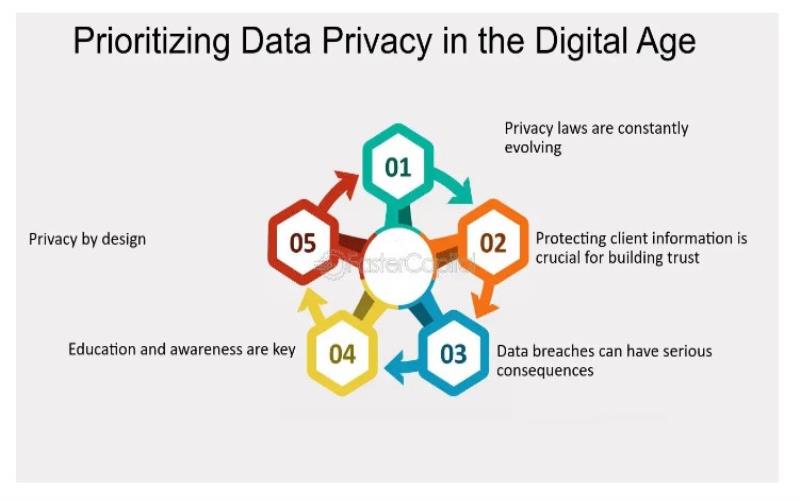In today’s digital age, where our lives are increasingly intertwined with the online world, prioritizing personal information security has become paramount. With the ever-present risks of identity theft, data breaches, and online privacy invasions, it’s crucial to take proactive steps to safeguard your digital identity and protect your online privacy. In this article, we’ll explore the importance of prioritizing personal information security in your daily life and provide actionable tips on how to protect your identity online.
the Importance of Online Privacy Protection
In an era where virtually every aspect of our lives is digitized, from social interactions to financial transactions, the need for online privacy protection cannot be overstated. Your personal information, including your name, address, contact details, and even your browsing history, is valuable currency in the digital realm. Cybercriminals, data brokers, and even tech giants are constantly seeking to harvest this information for various purposes, ranging from targeted advertising to malicious identity theft.
By prioritizing personal information security, you can mitigate the risks associated with online privacy invasions and safeguard your digital identity. This involves taking proactive measures to protect your online privacy, such as using secure passwords, enabling two-factor authentication, and being mindful of the information you share online. Additionally, investing in reputable online privacy protection services can provide an added layer of security and peace of mind.
Tips for Protecting Your Identity Online
Here are some practical tips to help you protect your identity online and prioritize personal information security in your daily life:
-
- Use Strong, Unique Passwords: Avoid using easily guessable passwords or reusing the same password across multiple accounts. Instead, use a combination of letters, numbers, and special characters to create strong, unique passwords for each online account.
- Enable Two-Factor Authentication (2FA): Two-factor authentication adds an extra layer of security by requiring you to provide two forms of verification before accessing your accounts. Enable 2FA wherever possible to reduce the risk of unauthorized access to your online accounts.
- Be Mindful of What You Share Online: Exercise caution when sharing personal information on social media, forums, or other online platforms. Avoid oversharing details such as your full name, address, phone number, or financial information, as this information can be exploited by malicious actors.
- Invest in Reputable Online Privacy Protection Services: Consider investing in reputable online privacy protection services that offer comprehensive solutions for protecting your digital identity and safeguarding your online privacy. Look for features such as identity monitoring, data encryption, and secure browsing to ensure maximum protection.
- Regularly Review Privacy Settings: Take the time to review and update the privacy settings on your social media accounts, web browsers, and other online platforms. Limit the visibility of your personal information to only those who need to see it, and regularly audit your privacy settings to ensure they reflect your preferences.
Additional Strategies for Enhanced Personal Information Security
In addition to the fundamental tips outlined above, there are several advanced strategies you can employ to further enhance your personal information security and protect your online privacy effectively.
-
Regularly Monitor Your Credit Report:
Monitoring your credit report regularly can help you detect any unauthorized activity or suspicious changes to your financial accounts. By keeping a close eye on your credit report, you can identify potential signs of identity theft early on and take swift action to mitigate any damages.
-
Encrypt Your Data:
Encrypting your sensitive data adds an extra layer of protection by scrambling the information, making it unreadable to unauthorized parties. You can encrypt your files, emails, and even your entire hard drive using encryption software or built-in encryption features offered by many operating systems and cloud storage services.
-
Utilize Virtual Private Networks (VPNs):
A VPN encrypts your internet connection and routes your online traffic through secure servers, thereby masking your IP address and providing anonymity while browsing the web. By using a VPN, you can protect your online privacy, bypass geo-restrictions, and prevent third parties from monitoring your online activities.
-
Practice Digital Minimalism:
Embracing a philosophy of digital minimalism involves consciously reducing the amount of personal information you share online and minimizing your digital footprint. Delete unnecessary accounts, unsubscribe from mailing lists, and limit the amount of personal information you provide to online services to reduce your exposure to potential privacy risks.
-
Stay Educated and Vigilant:
Remain informed about the latest trends, threats, and best practices in online privacy and security. Stay vigilant for phishing scams, suspicious emails, and other forms of cyber threats, and educate yourself on how to recognize and respond to potential risks effectively. By staying proactive and informed, you can better protect your personal information and maintain control over your online privacy.
Conclusion
Prioritizing personal information security in your daily life is essential for safeguarding your digital identity and protecting your online privacy from potential threats and vulnerabilities. By implementing a combination of fundamental and advanced strategies, such as using strong passwords, enabling two-factor authentication, investing in reputable privacy protection services, and staying educated about emerging threats, you can significantly reduce the risk of identity theft, data breaches, and online privacy invasions. Remember to stay vigilant, proactive, and informed to ensure maximum security and peace of mind in an increasingly digital world.

